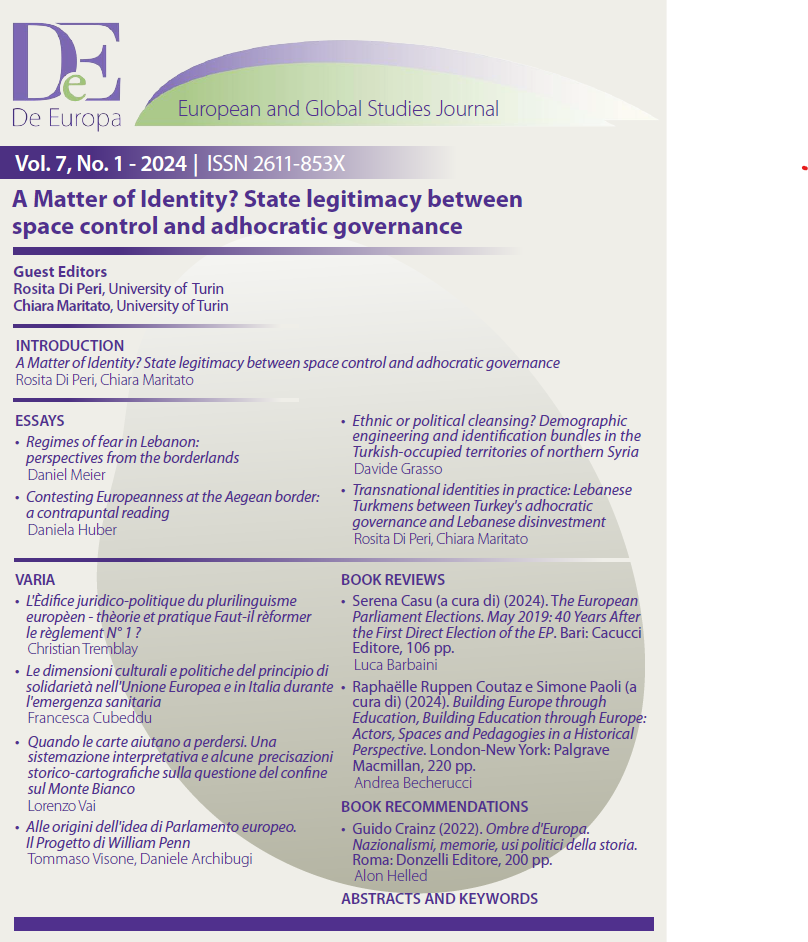A Matter of Identity? State legitimacy between space control and adhocratic governance
DOI:
https://doi.org/10.13135/2611-853X/10570Abstract
The spread of identity politicisation has revitalised the debate over the nature and transformations of the State and its role in the international arena. This shift has also underscored the importance of identity assumed in international relations (IR) as it offers an alternative to the traditional realist-rationalist vocabulary. Grounded on a counter-substantialist approach to identity the Special Issue moves the gaze from identity to identification processes. Identity as an essential object that explains actions fails to capture the constitutive relationship between actors’ identities and the social contexts in which they emerge. Consequently, the notion of individual or state identity as a foundation for actions is replaced by a process involving multiple acts of identification that occur in specific contexts and periods. How do identities, both as “identities in practice” and as given and abstract objects, influence states’ domestic and foreign governance?
To answer this overarching question, the Special Issue draws on two interrelated notions of identity: as bundles of actions of identification that acquire temporarily privileged status in specific discourses and as a causal variable in IR that explains why states act in certain ways. This dual analytical lens allows to examine (1) the centrality of space and time in debates on how identity has contributed to redefining the role of the State domestically and its relationships in the international arena and (2) the extent and ways in which ad hoc measures at the micro-scale of identification processes influence the macro-level identity–legitimacy nexus. This framework aligns identity studies with the concept of “adhocracy”, defined in bureaucracy and policy studies as either an intentional institutional setup or an unintentional outcome of policy implementation.
Keywords: State; Adhocratic Governance; Identity; Identification Processes; Space; Time




 The journal has been approved for inclusion in DOAJ. The DOAJ listing of the journal is available at
The journal has been approved for inclusion in DOAJ. The DOAJ listing of the journal is available at 

